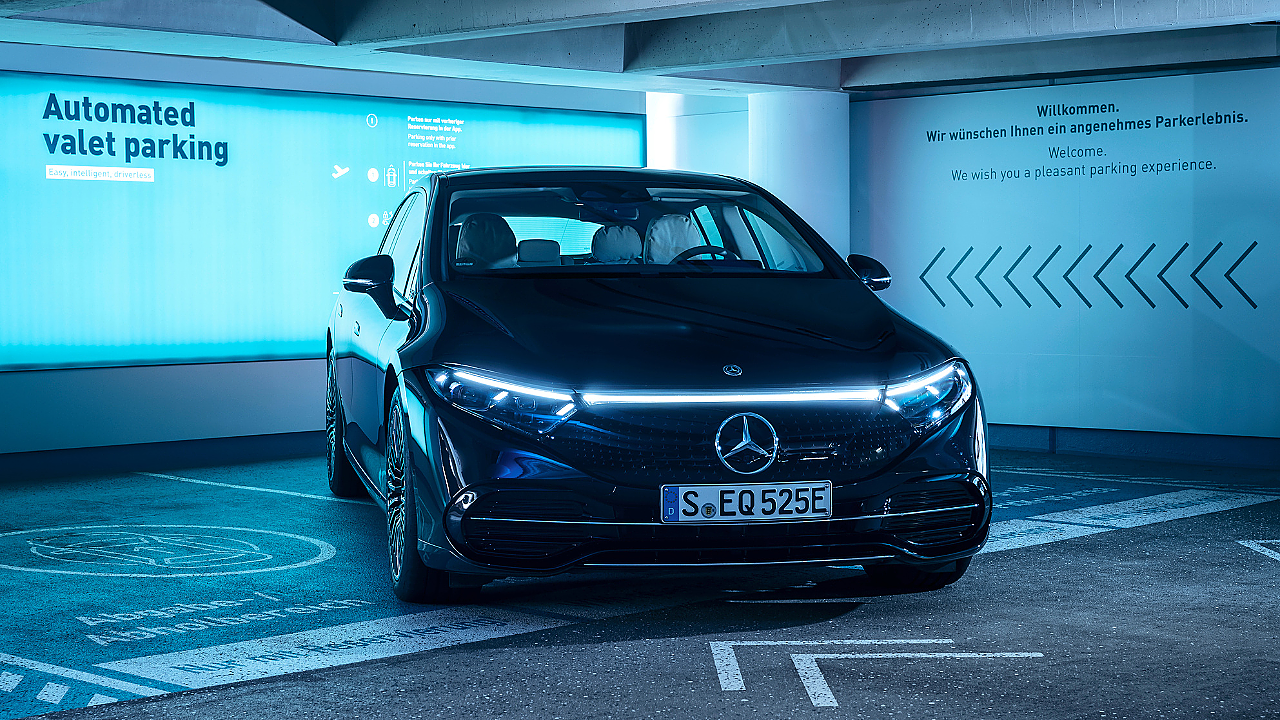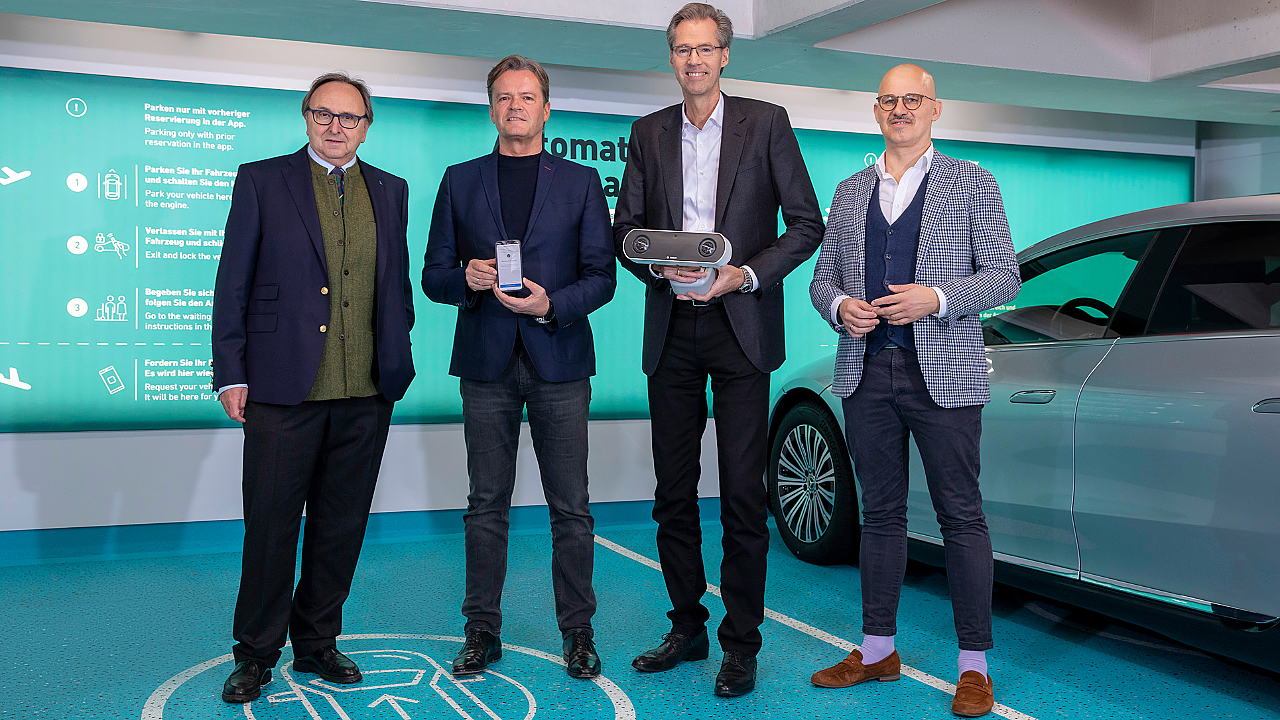
Have people desired a truly driverless vehicle experience? The answer is yes and no. However, the technologies around autonomous cars have been evolving during the past two decades.
OEMs worldwide have invested heavily in R&D to provide a driverless experience to customers and are working to bring fully autonomous vehicles to market. The history of self-driving cars can be traced back to 1925 when Francis Houdina drove a radio-controlled car through the streets of Manhattan. The radio could start the engine, shift gears, and sound the horn.
General Motors later developed the first self-driving car model, which debuted at the 1939 World's Fair. It was a radio-controlled electromagnetic field-guided electric vehicle that ran on magnetised metal spikes embedded in the road. Since then, many automakers have succeeded in introducing ADAS features up to level five; however, these vehicles have yet to be certified for legal road use.
In collaboration with its technology partner Bosch, Mercedes-Benz has received approval from Germany's Federal Motor Transport Authority (KBA) for using their highly automated parking system in the P6 parking garage operated by APCOA at Stuttgart Airport.
Dr Markus Heyn, Member of the Management Board and chairman of the Mobility Solutions business sector Bosch, noted that driverless parking is a key aspect of automated mobility. “The highly automated parking system we developed together with our partner Mercedes-Benz shows just how far we’ve already progressed along this development path,” he added.
Dr Heyn believes that with driverless parking, everyday automated driving will start. Interestingly, this makes it the world’s first highly automated driverless parking function (SAE Level-4) to be officially approved for commercial use.
Walter Schöfer, Management Spokesperson, Flughafen Stuttgart GmbH, said, “Automated Valet Parking really enhances our flight passengers’ comfort and convenience and saves them time, especially when they’re in a hurry and just want to drop their car off quickly at the airport.”
Collaborative Technology
Mercedes-Benz and Bosch obtained the world's first special permit to operate Automated valet parking using development vehicles without human oversight in everyday operations in the Mercedes-Benz Museum parking garage in Stuttgart in 2019. However, the new approval goes beyond this, allowing commercial operation with privately owned vehicles in Stuttgart Airport's P6 parking garage.
The approval is based on a law that went into effect in Germany in July 2021 and allows driverless driving in accordance with SAE Level-4 for motor vehicles. This law was applied to the parking system in close collaboration with the German Federal Ministry for Digital and Transport (BMDV) and the KBA.
The German Bundesrat passed the AFGBV (autonomous driving directive) on May 20, 2022, which specifies the German road traffic act criteria that Level-4 vehicles must meet. The new system allows car owners to send their vehicle to a pre-booked parking space by simply tapping a smartphone app. Then, after a while, the vehicle returns to the pick-up location in the same manner. The entire process depends on the interaction of Bosch intelligent infrastructure installed in the parking garage and Mercedes-Benz automotive technology.

The parking garage's sensors made by Bosch monitor the driving corridor and its surroundings and provide the information required to guide the vehicle. Meanwhile, the vehicle's technology converts information from the infrastructure into driving manoeuvres.
With this, vehicles can even drive themselves up and down ramps in the parking garage to move between stories. If an obstacle is detected by the infrastructure sensors, the vehicle brakes and comes to a safe stop. It only continues on its way once the path is clear.
Dr Hyen added that Bosch has taken the approach of making the infrastructure in parking garages intelligent. “Accordingly, we have set standards in this area. In the future, our aim is to equip more and more parking garages with the necessary infrastructure technology – we plan to do several hundred of them worldwide in the next few years,” he said.
Plan Of Action
The companies intend to gradually roll out the driverless parking service at Stuttgart Airport's APCOA P6 parking garage. Customers with S-Class and EQS models built after July 2022, whose vehicle variants include the 'Intelligent Park Pilot2' service as part of Mercedes 'me connect,' and who have activated this service will be able to use the function at the P6 parking garage.
After using the Mercedes 'me connect' app to reserve a parking space in advance, drivers can leave their vehicles in a designated drop-off zone.
Markus Schäfer, Member- Board of Management, Mercedes-Benz Group AG & Chief Technology Officer, responsible for Development and Procurement, said, “Following the market launch of our Drive Pilot Level-3 system, we will soon be offering a Level-4 system for parking with our Intelligent Park Pilot – all of that this year.”
Also Read
Mercedes-Benz India Launches GLB, EQB Staring At INR 63.8 Lakh
Bosch Eyes Larger Role For India In Supply Chain
Self-driving Cars Market To Grow At 13.3% CAGR Till 2030